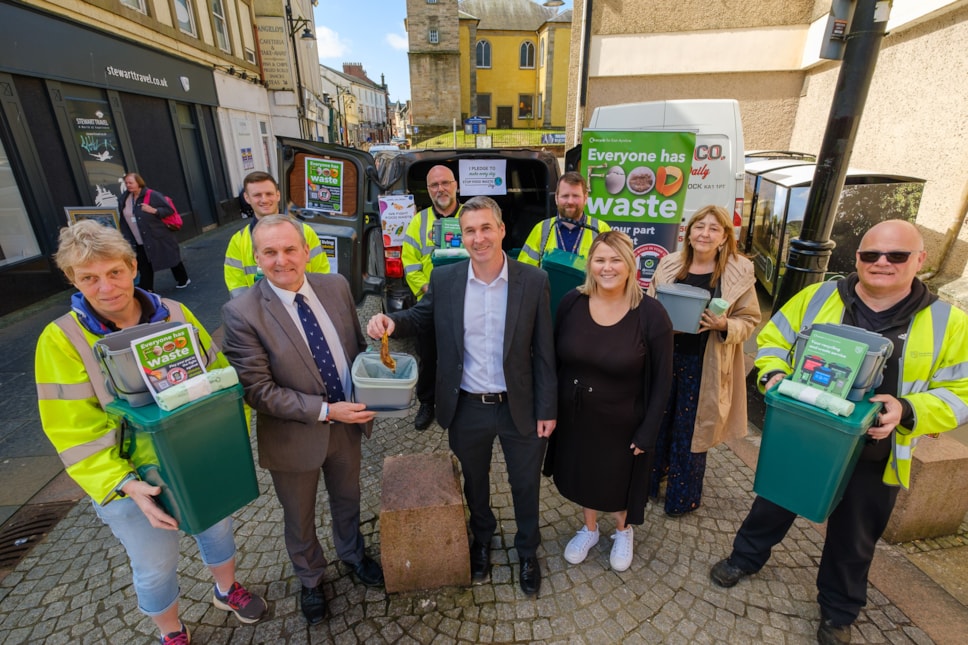
Stop Food Waste today and every day!
Cleaner Communities hit the streets on national Stop Food Waste Day to raise awareness of the environmental impact of food waste and to encourage local people to use their food caddy and recycle at home.
The startling fact is that food waste, collected from homes and commercial premises, accounts for over 40% of the Council’s carbon footprint. When food waste isn’t recycled it releases carbon dioxide, which is one of the most damaging greenhouse gases and has a significant impact on the climate emergency. It also means that we are losing out on creating green energy because food waste when it is recycled and is turned into biogas thanks to the process of Anaerobic Digestion, and the left over material is used as compost, starting the cycle all over again.
Cleaner Communities are working hard to encourage more food recycling with colleagues within Education by delivering projects like ‘Dinnae Forget your Caddy’, which is now in week 16, where children and young people from all our educational establishments have been asked to name their food caddy and collect community caddy points by putting food out for recycling.
And their Community Waste Officers are visiting primary schools to help the children and young people understand the importance of recycling.
Councillor Jim McMahon, Spokesperson for Housing, Transport and Communities and Councillor Graham Barton, Spokesperson for Planning, Property and Environment joined the team from Cleaner Communities for Stop Food Waste Day.
Councillor Barton said: “When we look at the food waste stats for East Ayrshire, Cleaner Communities has been able to calculate that 4,897 tonnes of edible food is thrown away each year, which equates to £456 worth of food for the average family. Avoiding food waste is the best way to ensure that you aren’t wasting money or resources and the key is to plan ahead with meals, using recipes for leftovers and storing food appropriately. There is lots of helpful information on our website that will guide you through meal planning and buying smartly.
“In addition to the edible food that is being thrown away, 6,617 tonnes of food waste is being put in residual waste bins annually and sent for Refuse-Derived Fuel (RDF) processing instead of being recycled; a process that creates carbon monoxide. This food could easily be recycled at home and converted into green energy instead. We all need to do our bit to recycle our food waste and I was really pleased to joined our Community Waste Officers in Kilmarnock town centre and chat with people about the importance of using the food caddy at home. We had lots of interest and people were taking away new bins and were also ordering them to be dropped off at their homes. Together we can all make a difference and help tackle the climate emergency.”
